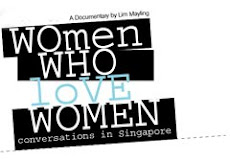| Dinah Gardner | |
| 30 October 2006 | |
| Asia’s biggest gay circuit party takes a final bow
The dancer and his white fundoshi were part of the show at Nation, Asia's biggest gay circuit party, now in its sixth and final year. Gay men and women from all over the world, but mostly from Asia, paid $180 for a three-day pass to dance to international DJ's, party around the pool and watch Japanese go-go boys and drag shows at the luxury hotel. The organizers even hired a flagger, a man in shiny tights and a handlebar moustache, who made a whirling dervish of color around his head by spinning tie-dyed cloth hemmed with glow sticks through a laser show backdrop. “The venue is great; the DJ's are fantastic,” says Stuart Koe, the Singaporean founder and chief executive officer of Fridae, the party organizer. The Singapore-based firm also runs Asia’s largest gay web portal at fridae.com and two other annual gay circuit parties – Snowball and Squirt. All of this outrageousness seems decidedly un-Singaporean but Koe started Nation six years ago because he thought it would be “cheeky to call it Nation and have this big gay party on the eve of Singapore’s national day. It was all about being cheeky.” For good bye it was a swirl, flirty and flamboyant. At the welcome Military Ball, party men clubbed in army fatigues. A group slung leather holsters across their bared chests, another donned a gas mask. One man sported a t-shirt which invited the reader to “enjoy the extra inches”; tattoos were definitely in. Other nights, partygoers covered themselves in gold leaf or twined themselves in light sticks, while the majority just took their shirts off. One clubber partied in his wheelchair.
“Saturday night was fabulous. Tony Moran is a miracle,” says James, a Taiwanese thirty-something who would only give his first name. “I don't come here just to party, but also to show support and hang out with my friends,” adds James, who is a regular at Fridae-hosted parties. This year, he notes, there are definitely more Caucasians. “Nation is the biggest single gay event in Asia, and so of course all those Caucasians come here to find Asian boys.” Londoner Marck Hill says he bought his Nation ticket because he had so much fun at a similar event last December in Taipei. It wasn’t so much to do with the pursuit of Asian boys, he insists. “We spent the afternoon having botox and now we’re here to party,” he laughs, adding that at 38 he’s already a grandfather. “I’m here for the hot men,” winks his American friend, who wouldn’t give his name as he eyed a Thai boy in tight, tiny shorts and a sailor cap mincing by. “Is it a man? Is it a woman?” the man laughs. “We want real men.” This year, says Koe, between 1,500 and 2,000 people partied at Nation. Last year’s event attracted 2,000 revelers. This year the numbers also got a boost from W@Nation, a concurrent event with sponsored Singapore-based lesbian party organizer Twoqueensparty. The 50-odd girls – mainly from the Island nation – got to party with the boys and have their own events, including girls-only pool parties. But why so few women? The question elicits responses that underscore differing cultures at play. “You girls just want to shack up together and raise cats,” laughs Hill. “Guys want to go out and party. Girls want to stay home and cook and knit.” “Our parties are driven by men wanting to meet men,” says Koe. “It’s not just for sex, but when you get down to it, it is driven by that. Women like to socialize – say with dinner parties with their close-knit friends. They are more laidback, there’s more depth to their friendships. Men are more hedonistic.” Although their numbers were small and despite a possible tendency to stay home and knit, the girls clubbed as hard as the guys, dancing and stripping down to their bras. |
Asia Sentinel: Asia's biggest gay circuit party takes a final bow (Oct 30)
Monday, October 30, 2006
Posted by Charm at 1:40 AM 0 comments
Labels: Asia Sentinel, Fridae, Nation
TNP: S'pore gay returns, says 'Things have changed' (Oct 19)
Thursday, October 19, 2006
S'pore gay returns, says 'Things have changed'
SHE left
19 October 2006
SHE left
She left for
She told The New Paper: 'Those were different times - we were still being beaten up, harassed - it wasn't like how it is now. There was a sense of fear - but things have changed.'
With whatever savings she had, Mary bought a plane ticket to
To pay for school and living expenses, she worked part-time.
One of her few Singaporean friends was a gay male who shared the same immigration lawyer. She had nearly no contact with her family back home throughout her stay there.
She moved back to
As her savings were dwindling, her family paid for her plane ticket home.
But Mary said her homecoming was joyful.
'I found that the (gay) community had grown, that it wasn't so underground anymore,' she said.
'The moment I realised that
'Most of us don't want to go - I didn't.'
Now, Mary works as a counsellor, dealing mainly with young women in similar circumstances.
She does not plan to return to
'At that time, I had to be where I wasn't going to be living in fear. I was scared - but it was a learning experience.'
Posted by Charm at 1:31 PM 0 comments





